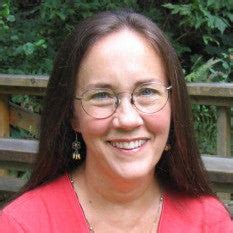A Quote by Lyndon B. Johnson
Knowledge is of two kinds: we know a subject itself, or know where to find it.
Related Quotes
The word "knowledge" itself, we like to break it down into two different words, "know" and "ledge." You've got to know the ledge. Know the limitation of things. Know where they go, know where they start from. We say knowledge is the basic foundation of the universe. But everything is first based on something being known. Then, when it's known, then it can be manifested.
Knowledge has two extremes. The first is the pure natural ignorance in which all men find themselves at birth. The other extreme is that reached by great minds, who, having run through all that men can know, find they know nothing, and come back again to that same natural ignorance from which they set out; this is a learned ignorance which is conscious of itself.
To answer oppression with appropriate resistance requires knowledge of two kinds: in the first place, self-knowledge by the victim, which means awareness that oppression exists, an awareness that the victim has fallen from a great height of glory or promise into the present depths; secondly, the victim must know who the enemy is. He must know his oppressor's real name, not an alias, a pseudonym, or a nom de plume!
There are two kinds of investors, be they large or small: those who don't know where the market is headed and those who don't know what they don't know. Then again, there is a third type of investor: the investment professional, who indeed knows he doesn't know, but whose livelihood depends upon appearing to know.
Real artists find answers. The knowledge of the artisan is within the confines of his skills. For example, I know a lot about lenses, about the editing room. I know what the different buttons on the camera are for. I know more or less how to use a microphone. I know all that, but that's not real knowledge. Real knowledge is knowing how to live, why we live, things like that.
These are two different exercises. One of them is, "You don't know and I know, so just shut up and listen," and the other one is, you're curious and you're learning, and I have a way where you can learn this so you'll know it as well. And when you know it, and know why you know it, then you don't have to reference me ever again because you take ownership of the knowledge, and you can then share it with someone else.
Everything that from eternity has happened in heaven and earth, the life of God and all the deeds of time simply are the struggles for Spirit to know Itself, to find Itself, be for Itself, and finally unite itself to Itself; it is alienated and divided, but only so as to be able thus to find itself and return to Itself...As existing in an individual form, this liberation is called 'I'; as developed to its totality, it is free Spirit; as feeling, it is Love; and as enjoyment, it is Blessedness.
I found myself desiring and knowing less and less, until I could say in utter astonishment: "I know nothing, I want nothing." Earlier I was sure of so many things, now I am sure of nothing. But I feel I have lost nothing by not knowing, because all my knowledge was false. My not knowing was in itself knowledge of the fact that all my knowledge is ignorance, that "I do not know" is the only true statement the mind can make....I do not claim to know what you do not. In fact, I know much less than you do.
Under the discipline of unity, knowledge and morality come together. No longer can we have that paltry 'objective' knowledge so prized by the academic specialists. To know anything at all becomes a moral predicament. Aware that there is no such thing as a specialized effect, one becomes responsible for judgments as well as facts. Aware that as an agricultural scientist he had 'one great subject,' Sir Albert Howard could no longer ask, What can I do with what I know? without at the same time asking, How can I be responsible for what I know?

































